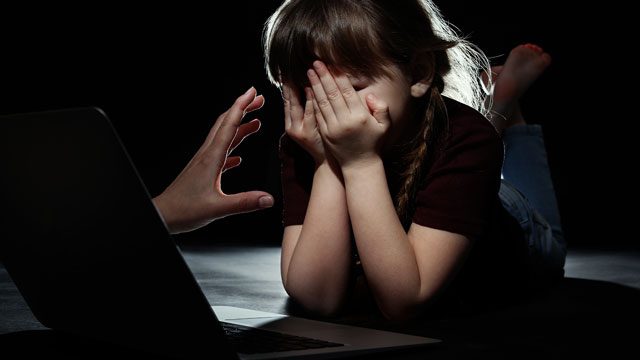SUMMARY
This is AI generated summarization, which may have errors. For context, always refer to the full article.

MANILA, Philippines – Lawmakers gave their nod to the bill protecting women and children from all forms of electronic abuse.
Voting 227-0-0, the House of Representatives approved on 3rd reading House Bill (HB) No. 5869 on Tuesday, February 4. (READ: Boys will be boys: Locker room talk and online harassment)
The measure would expand the coverage of Republic Act (RA) No. 9262 or the Anti-Violence Against Women and Children Act and define electronic violence or information and communications technology (ICT)-related violence as any act that involves the “use or exploitation of data or any form of information and communications technology which causes or is likely to cause mental, emotional, or psychological distress or suffering to the woman and her children.”
Speaking in the plenary session after the bill’s passage, Gabriela Women’s Party Representative Arlene Brosas said HB No. 5869 addresses a “loophole” in RA No. 9262.
“Violence is a stark reality that women have to struggle with every day…. Mr Speaker, this bill will give women an increased chance to fight all forms of violence and abuse,” said Brosas.
HB No. 5869 proposes stiff penalties on different forms of electronic abuse, with violators possibly facing 6 years up to 12 years in prison and a monetary fine ranging from P300,000 up to P500,000.
They may also undergo mandatory psychological counseling or psychiatric treatment.
HB No. 5869 considers as electronic abuse the unauthorized recording, sharing, and uploading of photos, videos, audio, and other forms of electronic or artistic presentation depicting the following:
- Private parts of women and children
- Scenes portraying sexual intercourse, masturbation, kissing, caressing, hugging, and petting
- Scenes showing sexually-related verbal or non-verbal expression of the woman and her children “which may be construed as lewd, indecent, or obscene”
- Scenes depicting any “errant” behavior, including the use of illegal drugs
- Scenes “suggestive” of a wrongdoing or act that “tends to besmirch” the reputation of women and children
The bill also counts as emotional abuse the use of text messages and other forms of cyber communication to harass, intimidate, coerce, threaten, or vilify women and children.
Those who would resort to online stalking, including the hacking of personal social media accounts and using location data from electronic devices, would also be penalized under the bill.
HB No. 5869 would consider spreading fake information about women and children using electronic devices and creating fake social media accounts to “sow intrigue or inflict harm” as electronic violence punishable by law. (READ: Fake news, real women: Disinformation gone macho)
Several of these provisions involving online sexual harassment have already been criminalized under the Safe Spaces Act or RA No. 11313, which President Rodrigo Duterte signed into law in April 2019. – Rappler.com
Add a comment
How does this make you feel?
There are no comments yet. Add your comment to start the conversation.